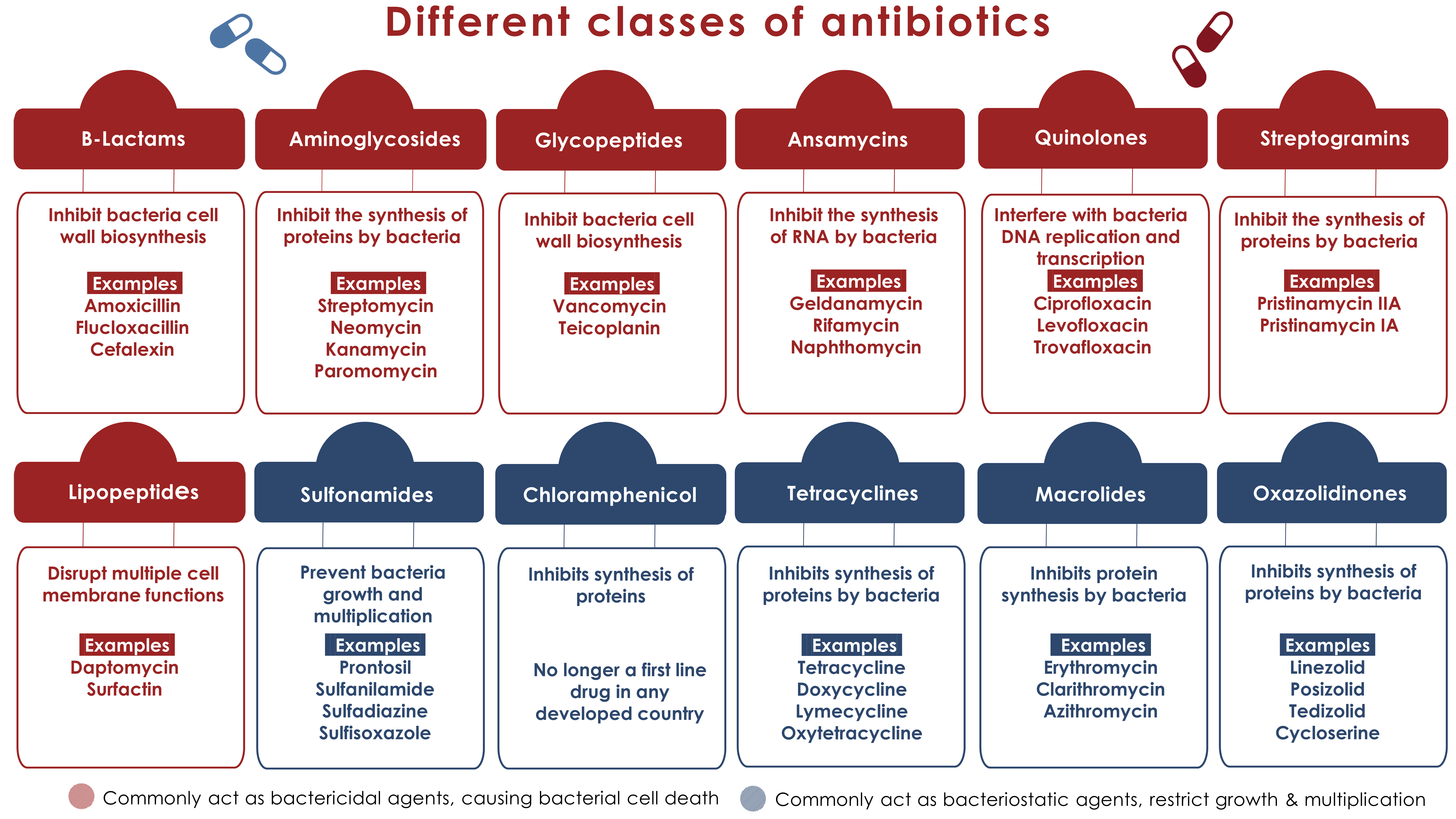In the face of rising antibiotic resistance, the development of a new class of antibiotics is a beacon of hope for combating drug-resistant infections. Kinvard Bio, a pioneering biotechnology startup, is at the forefront of this revolutionary effort, creating innovative compounds that demonstrate promise against some of the most challenging diseases caused by drug-resistant bacteria. Founded by esteemed chemists at Harvard University, Kinvard Bio aims to tackle the dire consequences of antimicrobial resistance, which is responsible for countless infections that conventional antibiotics can no longer treat effectively. As the World Health Organization warns about the escalating threat of antibiotic resistance, the need for new antibiotics has never been more urgent. With the unique ability to bind effectively to critical bacterial targets, Kinvard Bio’s breakthrough compounds could potentially reshape the future of infectious disease treatment and protect public health on a global scale.
As the global health crisis of antibiotic resistance looms large, the emergence of a novel antibacterial class represents a crucial advancement in medical science. Kinvard Bio, a biotech firm backed by groundbreaking research, is dedicated to innovating solutions that address the growing challenge posed by resilient pathogens. This initiative reflects a significant shift in the approach to treating infections, focusing on the development of compounds that circumvent existing resistance mechanisms. With a commitment to redefining antibiotic therapy, the company is poised to influence the landscape of antimicrobial drugs significantly. The underlying research highlights the vital need for renewed efforts in drug discovery to ensure effective treatment options for serious bacterial infections continue to be available.
Understanding the Rise of Drug-Resistant Bacteria
The emergence of drug-resistant bacteria represents a formidable challenge to public health globally, prompting concerns among health organizations, scientists, and pharmaceutical companies. Antibiotic resistance occurs when bacteria evolve to resist the effects of medications that once effectively eliminated them. This resistance can arise through various mechanisms, including genetic mutations and the transfer of resistance genes between bacteria. As bacteria adapt to their environments and develop these resistance mechanisms, antibiotics that were previously reliable become ineffective, resulting in persistent infections and increased mortality rates.
The World Health Organization (WHO) has reported that antibiotic resistance is one of the leading causes of adverse health outcomes, accounting for more than a million deaths annually. The growing prevalence of resistant pathogens can lead to longer hospital stays, higher medical costs, and increased mortality. In response, the urgent need for innovative treatments, particularly new classes of antibiotics, has never been more critical. Programs aimed at mitigating antibiotic misuse and improving antibiotic stewardship are essential to preserve the effectiveness of existing antimicrobials and to stimulate the discovery of new treatments.
The Role of Kinvard Bio in the Antibiotic Crisis
Kinvard Bio is emerging as a beacon of hope in the fight against antimicrobial resistance. Co-founded by Ben Tresco and Kelvin Wu, this biotech startup launched from Harvard University’s Myers Lab aims to innovate the development of antibiotics specifically designed to combat drug-resistant infections. An essential aspect of Kinvard Bio’s mission is creating a new class of antibiotics grounded in synthetic chemistry’s insights, focusing on unique compounds that target the bacterial ribosome—a proven mechanism in antibiotic therapy that is essential for bacterial protein synthesis.
The breakthroughs that Kinvard Bio is achieving stem from extensive research conducted over the past decade within the Myers Lab, where scientists have experimented with novel chemical synthesis techniques. The oxepanoprolinamides, the new antibiotics currently under development, are characterized by their unique structural properties that enable them to bind effectively to target bacteria, potentially overcoming existing antibiotic resistance mechanisms. According to CEO Lloyd Payne, this innovative approach is positioned to provide solutions to longstanding health issues by improving the treatment landscape for infections that remain constant threats in healthcare settings.
Innovative Approaches to Overcome Antibiotic Resistance
In its quest to address the alarming rise of drug-resistant pathogens, Kinvard Bio focuses on designing antibiotics with novel binding modes and mechanisms. This strategy promotes the development of compounds that can evade the resistance profiles seen in existing antibiotics. With two new antibiotic classes approved in the past five years, there is a pressing need for alternatives that can effectively manage bacterial infections resistant to conventional therapy.
Kinvard Bio employs cutting-edge methodologies to enhance the binding efficacy of its antibiotic candidates to the bacterial ribosome. By optimizing molecular interactions, they aim to ensure that their drugs remain effective even in the presence of established resistance. This pioneering work exemplifies the drive for innovation necessary to respond to the complex challenges posed by antimicrobial resistance, emphasizing the importance of continued investment in research and development within the biopharmaceutical sector.
The Importance of Early-Stage Research in Antibiotic Development
Early-stage research is a critical stepping-stone in the journey toward effective antibiotics. The transition from laboratory concepts to practical applications involves rigorous testing and validation processes that can take many years. Kinvard Bio, with support from institutions like the Blavatnik Biomedical Accelerator and CARB-X, is positioned to navigate these challenges. Their funding aids in the synthesis and efficacy testing of new compounds, which is an essential part of advancing promising antibiotic candidates.
With preclinical studies already showing positive results against a diverse set of pathogens, Kinvard Bio is actively exploring new therapeutic pathways. This early-stage research is vital not only for the refinement of their current antibiotic candidates but also for the future expansion of their pipeline. As the scientific community acknowledges the urgency of tackling antimicrobial resistance, Kinvard Bio’s contributions reflect the collaborative efforts needed to foster innovation within this critical area.
New Strategies for Combatting Antibiotic Resistance
Emerging strategies for combatting antibiotic resistance involve a multifaceted approach that incorporates both scientific innovations and public health initiatives. Kinvard Bio represents a forward-thinking response to this global challenge by focusing on the discovery of antibiotics that work in fundamentally different ways than those currently available. The development of new drugs not only relies on the chemistry involved but also on a thorough understanding of bacterial biology and the mechanisms of resistance.
Potential solutions to the antibiotic crisis include continuing education on proper antibiotic use, better infection control practices, and a commitment to research and development of novel therapies. By advocating for innovative new antibiotics and supporting research endeavors like those at Kinvard Bio, stakeholders can contribute to a robust pipeline that will address both existing and emerging infections resistant to treatment. This comprehensive strategy is vital to ensure that healthcare remains equipped to handle the evolving landscape of infectious diseases.
Funding and Support for Antibiotic Development Initiatives
Securing funding for antibiotic development is essential for fostering innovation in this field. Kinvard Bio has benefited from various funding sources, such as the CARB-X initiative and Harvard’s Blavatnik Biomedical Accelerator. This financial support is instrumental in advancing research aimed at generating effective new antibiotics to combat drug-resistant bacteria. Such grants play a vital role in the long-term viability of biotech startups focusing on antimicrobial therapies.
In addition to monetary support, collaborations with academic institutions and biotech accelerators provide essential networking and mentorship opportunities for start-up companies like Kinvard Bio. This collaborative environment nurtures the growth of talent in combating antimicrobial resistance while ensuring that innovative ideas translate into real-world solutions. As funding landscapes evolve, continued investment in scientific research and biotechnology is critical for sustaining momentum in antibiotic development initiatives.
The Future of Antibiotic Development: A Collaborative Effort
Looking ahead, the future of antibiotic development hinges on collaboration across various sectors, including academia, industry, and government. Kinvard Bio’s establishment reflects a growing trend where start-ups are tackling the antibiotic crisis through innovative science and a commitment to public health. By prioritizing partnerships, these entities can combine resources, expertise, and knowledge to create a more substantial impact on antibiotic discovery and resistance mitigation.
Additionally, fostering a collaborative network among emerging biotechnology companies, established pharmaceutical firms, and healthcare providers fosters an environment where new ideas can flourish. The collective input from diverse stakeholders enhances the development pipeline, ensuring that new antibiotics are not only discovered but also brought to market efficiently, meeting the urgent demand for effective treatments against drug-resistant infections.
Global Health Implications of Antibiotic Resistance
Antibiotic resistance is not merely a local concern; it poses significant global health implications that affect populations worldwide. The WHO has classified antimicrobial resistance as one of the top ten global public health threats facing humanity, potentially reversing decades of medical advances. Resistant infections can jeopardize the success of surgeries, cancer therapies, and treatments for chronic diseases, underscoring the urgency of addressing this issue through comprehensive actions on all fronts.
The initiatives spearheaded by companies like Kinvard Bio are critical in the global fight against antibiotic resistance. As the landscape of infectious diseases evolves, it is essential to ensure that innovative solutions are developed and deployed efficiently to safeguard public health. By emphasizing global collaboration, education, and research, stakeholders can work together to combat this pressing health crisis effectively and equitably.
Leveraging Synthetic Chemistry for Novel Antibiotics
The application of synthetic chemistry plays a pivotal role in the quest for new antibiotics. Kinvard Bio leverages cutting-edge techniques to design and synthesize novel antibiotics that account for existing resistance patterns in bacteria. By optimizing molecular structures and binding properties, researchers aim to create compounds that can effectively target and neutralize resistant pathogens. This novel approach can help restore the efficacy of antibiotic treatments in an era where traditional options are dwindling.
The synthesis of new classes of antibiotics, such as those being developed at Kinvard Bio, demonstrates the potential of chemistry to solve some of today’s most pressing medical challenges. With continued investment and innovation in this field, there is promise for creating effective antibiotics capable of treating a wide array of infections, laying the groundwork for a healthier future amid the rising prevalence of drug-resistant bacteria.
Frequently Asked Questions
What is a new class of antibiotics and its significance in fighting drug-resistant bacteria?
A new class of antibiotics refers to innovative antibiotic compounds that work differently from existing antibiotics. This is significant because traditional antibiotics are becoming less effective due to antibiotic resistance, which allows drug-resistant bacteria to survive treatment. New antibiotics are crucial for combating these resistant infections, ultimately saving lives and reducing the burden of antimicrobial resistance.
How are Kinvard Bio’s new antibiotics targeting antibiotic resistance?
Kinvard Bio is developing a novel antibiotic class known as oxepanoprolinamides, which specifically target the bacterial ribosome. This approach is clinically validated and aims to overcome pre-existing resistance mechanisms that drug-resistant bacteria have developed against traditional antibiotics. By utilizing a differentiated binding mode, these new antibiotics hold promise for effectively treating infections otherwise impervious to existing treatments.
What role does antimicrobial resistance play in the need for new antibiotics?
Antimicrobial resistance (AMR) is a significant threat to global health, as it renders many bacteria resistant to currently available antibiotics. The emergence of AMR leads to increased morbidity and mortality rates from previously treatable infections, underlining the urgent need for new classes of antibiotics that can effectively combat these resilient bacterial strains.
What types of infections are Kinvard Bio’s new antibiotics aimed at treating?
Kinvard Bio’s new antibiotics are targeted towards acute and chronic infections, particularly where there are high unmet medical needs. These include bacterial pneumonia, complicated urinary tract infections, and chronic respiratory infections. The goal is to provide treatment options for infections caused by drug-resistant bacteria and to enhance patient outcomes.
How does Kinvard Bio’s research contribute to the fight against antibiotic-resistant infections?
Kinvard Bio’s research contributes significantly by innovating new antibiotics that are designed to circumvent the resistance mechanisms of drug-resistant bacteria. Their focus on the bacterial ribosome allows for a novel approach to antibiotic development, ensuring that these new drugs can effectively address infections that challenge current antibiotic treatments.
What funding and support has Kinvard Bio received for developing its new class of antibiotics?
Kinvard Bio has received substantial support, including a $1.2 million grant from the Combating Antibiotic-Resistant Bacteria Biopharmaceutical Accelerator (CARB-X) and funding from the Blavatnik Biomedical Accelerator. These resources have enabled the company to advance its research and development efforts in creating effective new antibiotics to combat drug-resistant infections.
Why is the innovation of new antibiotics crucial for global health?
The innovation of new antibiotics is crucial for global health because it addresses the growing problem of antibiotic resistance, which leads to ineffective treatments for various infections. With millions of deaths attributable to drug-resistant bacteria, developing new classes of antibiotics ensures continued success in treating infections and preventing the loss of effective treatment options for future generations.
What distinguishes Kinvard Bio’s antibiotics from existing medications?
Kinvard Bio’s antibiotics are distinguished by their unique chemical structure and mode of action, particularly their optimized binding to the bacterial ribosome. This innovative approach reduces the likelihood of drug-resistant bacteria having pre-existing resistance to these new antibiotics, allowing for a more effective treatment regimen for bacterial infections.
| Key Points |
|---|
| Kinvard Bio is a Harvard startup focused on creating a new class of antibiotics to combat drug-resistant infections. |
| The first antibiotic, penicillin, revolutionized medicine in the 1940s, but antibiotic resistance has become a global health crisis. |
| Drug-resistant infections were responsible for over a million deaths worldwide in 2019. |
| Kinvard Bio is developing oxepanoprolinamides, antibiotics that bind to the bacterial ribosome in a unique way. |
| The company aims to address challenges in treating severe infections, particularly where existing antibiotics fail. |
| The startup has already secured significant funding to support its research and development efforts. |
| Clinical trials are planned to assess the effectiveness and safety of their new antibiotics in humans. |
Summary
The emergence of a new class of antibiotics is crucial in the fight against antibiotic resistance. As Kinvard Bio strives to develop innovative solutions targeting drug-resistant infections, their research represents a significant step forward in addressing one of the most pressing health crises of our time. With the potential to improve treatment outcomes for various challenging infections, the new class of antibiotics being crafted by Kinvard Bio could pave the way for future advancements in infectious disease management.



